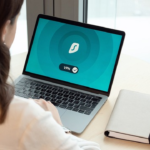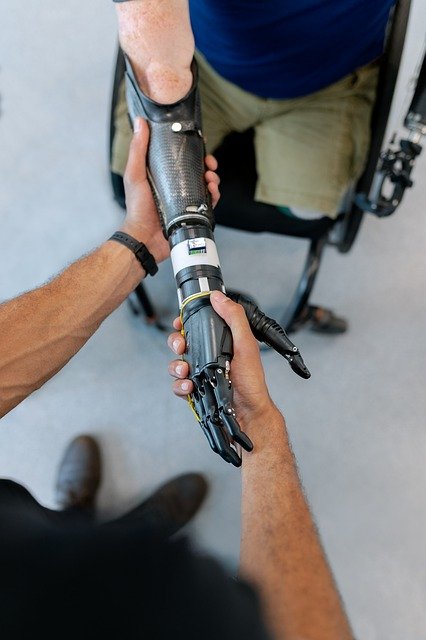You’re reading the web edition of STAT Health Tech, our guide to how tech is transforming the life sciences. Sign up to get this newsletter delivered in your inbox every Tuesday and Thursday.
Chatbots help telehealth companies rethink the front desk
Most telehealth companies haven’t cracked the code to profitability yet. But a growing number are hoping automation — whether it’s text-based chatbots, questionnaires, or followups — could help them trim costs and treat more patients with fewer resources. And as Amwell CEO Roy Schoenberg points out, automation could help telehealth companies tap into a potentially more lucrative chronic care market by helping them check on patients more frequently. Still, experts warn there are risks to an overreliance on automation, including the sidelining of patients who don’t speak English or who can’t navigate the tech. “Patients who are more on the margins, who have more difficulty accessing the system, are going to have even more trouble accessing the system,” Peter Yellowlees, a psychiatrist at UC Davis Health, told Mohana. She has the full story.
advertisement
What’s interesting from CES 2022 (so far…)
The annual Consumer Electronics Show is off to a somewhat muted start after many companies and attendees pulled out at the last minute following fears about the Omicron variant, but there have still been some announcements of interest so far.
advertisement
- Home blood pressure monitor maker Omron laid out the roadmap for how it will build up an ecosystem of health services around its products, including a broad expansion of its remote patient monitoring services in the U.S. and a global launch of a hypertension-focused service in the U.K. The company also teased an upgraded version of its Omron Connect app as well as a budding AI research program to predict cardiac events in collaboration with Kyoto University.
- Withings, well-known for its consumer health wearables, announced a new souped-up connected scale “with the ability to monitor segmental body composition, heart rate, and vascular age” as well as “nerve activity and heart rhythm using a 6-lead ECG.” It will be available after the device receives Food and Drug Administration clearance.
- Connected lightbulb company Sengled announced a Smart Health Monitoring Light, which the company claims will be able to monitor health. The kicker, that got the attention of some critics, is that by connecting multiple bulbs and you can create a virtual map of your home to “help detect human behavior and determine if someone has fallen and then send for help.” The release makes no mention of privacy, and the idea that the lightbulbs are watching you might creep some people out.
- Highmark Health and Bosch will team up to test the industrial giant’s SoundSee audio AI tech to see if it can detect pediatric pulmonary conditions. Clinical studies will begin at the Allegheny Health Network this year.
Takeaways from the Holmes verdict
After Theranos founder Elizabeth Holmes was found guilty on several charges of fraud this week, Casey talked to experts about takeaways from the trial. Maybe the most striking aspect of the convictions, they said, is that investors ultimately proved more compelling victims than the patients who received flawed test results from Theranos. Holmes gave investors information she knew was false or misleading, and those investors relied on those falsehoods when they agreed to give large sums of money to Theranos. The line between Holmes and patients is more circuitous, making it harder to establish that her actions directly impacted their thinking and decisions when they used Theranos’ faulty technology. Read more.
California mandate gives at-home test makers a boost
California is the first state mandating that health insurers — including its Medicaid program — pay for at-home tests detecting sexually transmitted diseases as rates climb across the country, Kaiser Health News’ Rachel Bluth reports. If other states follow suit, it could mean bigger business for venture-backed test kit companies like Everly Health and LetsGetChecked, which have processed tens of millions of Covid-19 tests over the past two years.
Hospitals leave mobile opportunities on the table
Smartphones and tablets have garnered some hype as solutions to pernicious health care bottlenecks, like difficulties pulling up current EHRs when caring for patients. But health care workers aren’t sold on on mobile tech yet. A new small study aiming to understand where the devices can improve hospital workflow concluded that what hospitalists want most is tech to help them communicate with their teams. The study, published in JMIR Human Factors, canvassed just 12 doctors, nurses, and residents. Their overarching opinion: mobile devices and task-specific apps could alleviate burden on hospitalists having to jog their memories to answer patient questions and could also reduce redundant actions in the hospital.
Seeds and acquisitions
- Syntegra, a synthetic healthcare data startup, raised $5.6 million seed round from numerous investors, including Sweat Equity Ventures and Hike Ventures.
- Med-tech startup Strados Labs raised a $4.5 million round from investors including SOSV, cultivate(MD), Wavemaker360 Health, Blu Venture Investors, and Broad Street Angels.
- Symplr, which makes health care operations software, plans to acquire health data company Midas Analytics Solutions from Conduent.
- Babylon Health, a company that sells telehealth and software tools for providers and insurers, acquired Higi, which sells health kiosks and apps and devices patients use to track their own health.
Personnel file
- Hero, which makes a home pill dispenser, added former FDA deputy commissioner Anand Shah to its board.
- Health care tech solutions provider Bamboo Health appointed Rob Cohen as CEO. He was previously president and general manager of the company.
What we’re reading
Source: https://www.statnews.com/2022/01/06/telehealth-health-tech-ces/









